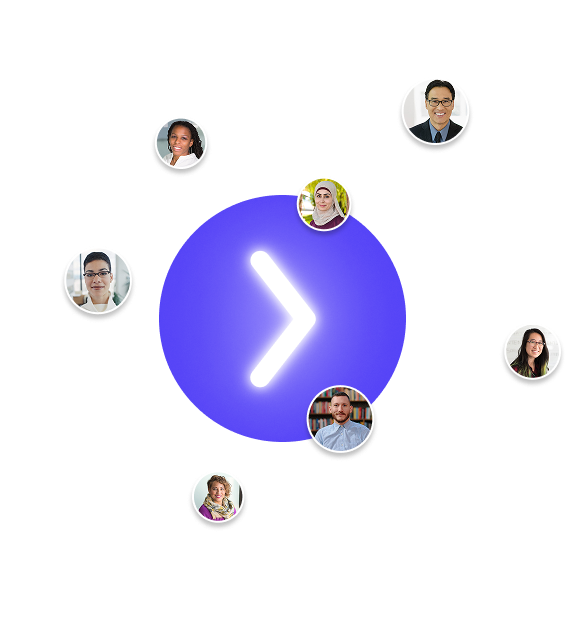
Subscribe to our Blog
We're committed to your privacy. SayOne uses the information you provide to us to contact you about our relevant content, products, and services. check out our privacy policy.

Jomin Johnson August 6, 20249 min read

Generating table of contents...
Finding a software development partner - because who needs the hassle of building a team from scratch, right? You've got a great idea, but turning it into a tangible product requires expertise, resources, and a whole lot of time. That's where a software development partner comes in.
You might wonder why bother with a partner at all. Can't you just hire a few developers and call it a day? Well, let's be real. Building a successful software product requires more than just coding skills.
It requires expertise in design, testing, project management, and a whole lot of other areas. And let's not forget the costs associated with hiring and retaining top talent.
A software development partner can bring all of these skills to the table without breaking the bank.
According to a survey by Commit, 70% of US startups are expected to outsource software development between 2022 and 2023, with the primary goal of scaling their businesses quickly and efficiently. This trend is not limited to startups, as 79% of companies are already outsourcing app/software development.
The market is flooded with potential partners, each promising to turn your vision into a reality. But let's be honest: not all of them are created equal. You need someone who understands your vision, shares your goals, and can deliver a product that doesn't make you want to pull your hair out.
So, how do you find a reliable partner? Well, it's not as simple as Googling "software development partner" and choosing the first result (please don't do that). It takes research, due diligence, and a clear understanding of what you need. You need to define your project requirements, assess potential partners, and evaluate their expertise. And even then, there's no guarantee of success.
So, Below, we have rounded up a few valuable steps for finding the right development partner for you. Take a look!
When searching for a software development partner, you must clearly understand what you need and what you're trying to achieve. A well-defined set of needs and goals will help you find a suitable partner for your project, saving you time and money in the long run.
Can you articulate your needs and goals in a way that a potential partner can understand and work with?
Having a clear understanding of your needs and goals will enable you to communicate your vision effectively to potential partners. This, in turn, will help you find a partner that shares your vision and can help you achieve your goals. By defining your needs and goals, you'll be able to create a tailored request for proposal (RFP) that will attract the right partner for your project.
When searching for a software development partner, it's easy to get overwhelmed by the numerous options available. To ensure a successful partnership, conducting thorough research and shortlisting potential partners based on key criteria is essential.

Checkout the Guide on Scrum model that used for Project Management
While it may be tempting to compromise on one or two of these aspects, the consequences can be severe. A partner with inadequate technical expertise can lead to subpar solutions, while poor communication can result in misunderstandings and delays.
The Answer: Prioritize Your Needs and Be Selective
Finding the right software development partner requires prioritizing your needs and being selective. Doing so can ensure a successful partnership that delivers high-quality solutions on time and within budget. A good partner is an investment in your project's success, not a cost to be minimized.
When searching for a software development partner, the interview process is non negligible in determining the success of your collaboration.
Setting clear expectations from the start is essential to ensuring a smooth collaboration. This includes defining project goals, timelines, and budgets and establishing open lines of communication.
Readmore: Know the difference between Outsourcing vs. Outstaffing
A good software engineer should demonstrate problem-solving skills, logical thinking, and curiosity, so look for evidence of these traits in their responses to behavioral questions.
Their ability to communicate complex ideas and think critically is also essential, as they must articulate their thought process and design decisions to technical and non-technical stakeholders.
Consider their,
By assessing these skills and qualities, you can get a sense of a candidate's overall approach to software development and determine whether they would be a good fit for your team.
Finding the right software development partner is just the beginning. Making the partnership work is a whole different story.
Here are some no-brainer tips to ensure a successful partnership:
Who does what? Make sure you and your partner clearly understand each other's strengths and weaknesses. This includes identifying key decision-makers, communication channels, and escalation procedures.
Regular updates, transparent decision-making, and constructive feedback are key to a healthy partnership. Schedule regular check-ins, such as weekly or bi-weekly meetings, to ensure both parties are on the same page.
You don't have to be best friends, but respect each other's opinions and contributions. Encourage open and honest communication, and be willing to listen to each other's concerns and ideas.
Checkout the Guide on How to Outsource Software Development
Assessing a software development partner's capabilities, expertise, and fit for your project is essential when searching for one.
With over 10 years of experience in software development, SayOne has established itself as a trusted partner for businesses looking to build innovative solutions. Our expertise in emerging technologies, extensive experience in different industry verticals, and commitment to delivering scalable, secure, and reliable solutions make us an ideal partner for your project.
We have successfully delivered over 270 projects for more than 230 happy clients. Our case studies showcase our expertise in developing complex software solutions, including mobile apps, web applications, and e-commerce platforms.
At SayOne, our mission is to deliver the best technology solutions that empower our clients to adapt to ever-changing business environments easily and realize their goals. We value integrity, commitment, and transparency, and strive to deliver high-quality solutions that meet our clients' needs.
Our team of experts has extensive experience in developing software solutions using a range of technologies, including Python, Angular JS, Django, and React JS. We have expertise in developing mobile apps, web applications, and e-commerce platforms, and have worked with clients across various industries.
If you're looking for a trusted software development partner, get in touch with us today. We'd be happy to discuss your project requirements and how we can help you achieve your goals.

We're committed to your privacy. SayOne uses the information you provide to us to contact you about our relevant content, products, and services. check out our privacy policy.

About Author
Head of AI-Retail @ SayOne Technologies|Project Manager | Product Owner - CSPO®| Lead Business Analyst

We collaborate with visionary leaders on projects that focus on quality